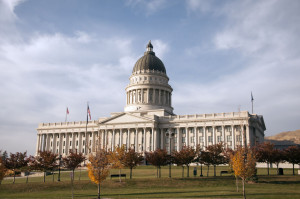How meeting laws changed after the latest legislature session
 One aspect of this year’s Utah Legislative session is hidden under the radar a bit, but it’s very important to your special district’s operations. For example, several bills introduced and passed affect how open and public meetings are conducted.
One aspect of this year’s Utah Legislative session is hidden under the radar a bit, but it’s very important to your special district’s operations. For example, several bills introduced and passed affect how open and public meetings are conducted.
Even if these are for meetings that aren’t strictly for special districts, they set precedents likely to be followed by most groups within the state’s umbrella.
Here’s an overview of what we gathered from the bills that regarded meetings. You can see more about the legislative session that may relate to your work in our downloadable PDF overview, found in a link on our homepage.
HB21: Open and Public Meetings Act Amendments
One amendment permits a public body of a special district or special service district to convene and conduct an electronic meeting in certain circumstances, even if there isn’t an anchor location (ie: conducted on a video chat device).
These also include a change that requires school boards to allow reasonable opportunity for the public to provide verbal comments at their meetings, with some exceptions. There was also an amendment to require school boards to adopt written policies around comments for open and public meetings.
HR2: House Rules-Public Comments
This bill prohibits a chairperson from taking public comment from a person unless they can provide their legal name and the entity that the person represents. There are also new rules spelled out concerning participation via video. This includes the commenter’s need to provide their address, and to ensure that full video is enabled before commenting takes place.
SP245: Closed Public Meeting Amendments
The last bill that affects meetings includes a specific instance where a closed session is allowable: consideration of loan applications. This is to prevent any discussion of the loan applications’ details from being disclosed publicly and maintain privacy of financial information.
Other information of interest
A look through the document we’ve provided on amendments shows several other items that special districts should check out. From water management changes to public notices, elections to taxation, there were many changes to current laws that might affect the business of a district. It’s good for everyone who works for a special district to look at the document.
For more details on legislative business and resources that can help you in your work, visit our website.






